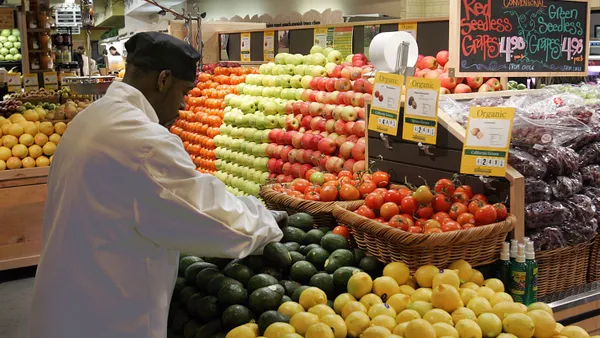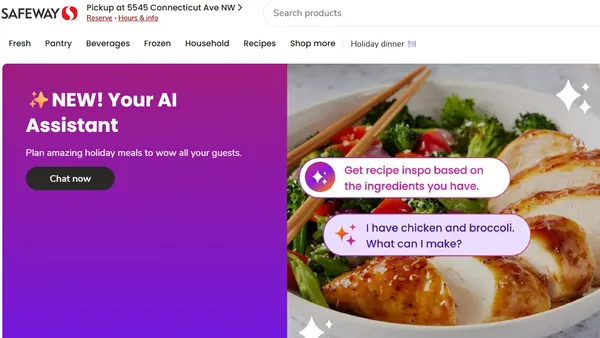Dive Brief:
- Shelf Engine, an artificial intelligence startup that helps food retailers predict the quantity of products they will sell before placing orders with suppliers, has raised $12 million in Series A funding from a group of venture capital firms, according to a report by GeekWire.
- The new round of funding, which brings the amount of money Shelf Engine has raised to more than $17 million, was led by GGV Capital, which has also invested in firms including Alibaba, Slack and GrubMarket.
- The company, which counts Kroger and Target among its customers, plans to use the funds to beef up its engineering staff and strengthen its sales and acquisition process, TechCrunch reports.
Dive Insight:
Shelf Engine is building its future by focusing 21st-century technology on an age-old grocery industry challenge: balancing supply quantity with what consumers are likely to buy.
On its website, the company highlights statistics about the amount of food grocers aren’t able to sell and advertises its ability to improve profitability by cutting waste.
Shelf Engine uses machine learning techniques to parse sales data, school schedules, local events and other factors to forecast what a grocery store’s customers are likely to purchase, then uses its conclusions to develop orders and transmit them to vendors. The company says it is so confident in its technology that it will purchase inventory its clients aren’t able to sell.
From its inception, Shelf Engine has sought to align itself with top-flight technology sector funders. The firm got its start with help from Y Combinator, a Silicon Valley-based incubator that provides seed capital to entrepreneurs and has helped launch a broad range of high-profile companies, including Instacart, DoorDash and Airbnb.
In addition to GGV, investors that have more recently invested in Shelf Engine include Initialized Capital Management — an early investor in Instacart — 1984, and Correlation Ventures, Shelf Engine tweeted.
Shelf Engine is not alone in capturing interest from investors eager to capitalize on the tech sector’s industry’s efforts to help grocers reduce shrinkage stemming from unsold inventory.
The company’s latest round of funding comes on the heels of an announcement from Afresh Technologies, another firm that is using artificial intelligence to help food retailers predict demand and manage orders, which said earlier this month that it brought in $12 million in a Series A follow-on funding round, pushing the total amount of money the company has raised to $20 million. Afresh says its platform increases fresh food sales and gross margins and cuts in-store food waste by up to half.









